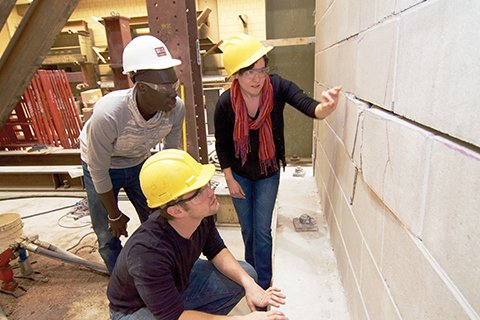Civil engineering
Civil engineers work for society. They analyze, design, and supervise the construction of roads, buildings, water supply systems, airports, tunnels, dams, bridges, and wastewater treatment systems. They must consider many factors in the design process including regulations and policy issues, sustainability, fabrication costs and constructability, expected lifetime of a project, and risk assessment of natural events and potential hazards.
Civil engineering is one of the broadest area of engineering and has tangible impact on quality of life, human health, and safety.
Careers
- Civil engineer
- Environmental engineer
- Field engineer
- Geotechnical engineer
- Municipal engineer
- Project engineer/manager
- Structural engineer (buildings, bridges, towers)
- Transportation engineer (highways, urban transit, airports)
- Wastewater engineer
- Water resources engineer
What will I study?
Our comprehensive curriculum prepares you for a professional career or advanced study. You’ll learn to solve problems by applying mathematics, chemistry, and physics, as well as using high-tech equipment and sophisticated procedures. Opportunities to develop your technical skills abound, and you can join student groups like the concrete canoe team.
Emphasis areas include:
- Environmental engineering
- Geomechanics
- Structural engineering
- Transportation engineering
- Water resources engineering
- Municipal engineering
The Bachelor of Civil Engineering is accredited by the Engineering Accreditation Commission of ABET.

